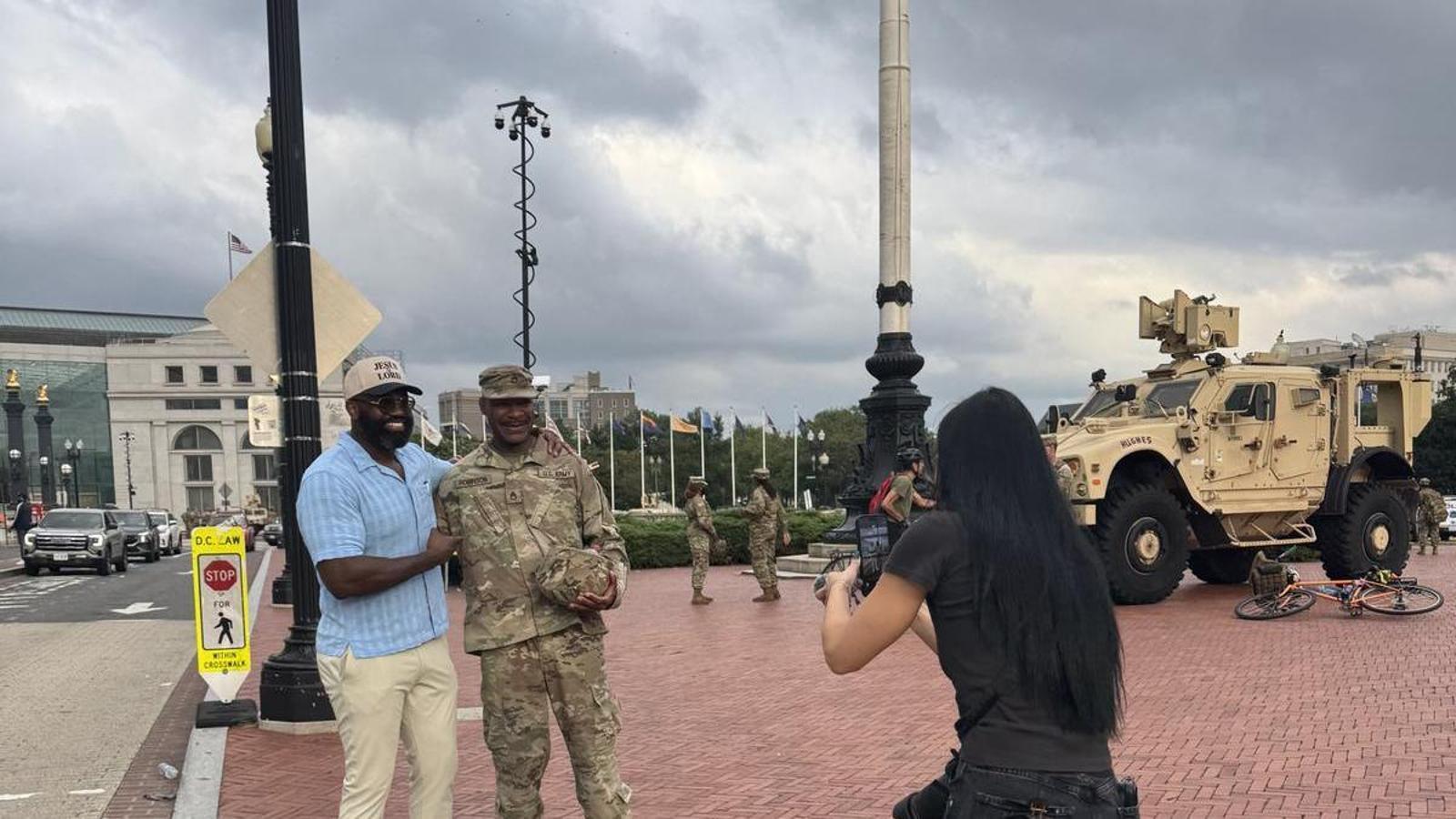Nothing is happening in Washington, but the army is on the streets.
President Trump says the city is "safer than ever," but many residents are afraid to leave their homes.


WashingtonThe day before Donald Trump announced the deployment of the National Guard in WashingtonThe city looked like any other Sunday in August. It wasn't the stifling, humid heat of the capital's summer, and the breeze was breezy, which was welcome. Many terraces on 14th Street, one of its main thoroughfares, which runs north to south, were packed.
Some of the passersby were wearing workout clothes—mostly yoga pants—and carrying bags from Trader Joe's, the equivalent of, say, Almendro Origen, for white-collar professionals who don't mind paying a premium for proven quality. In Columbia Heights, one of the neighborhoods with the largest Latino and Black populations, street vendors selling sliced mangos and other prepared foods were on the usual corner, in front of the mall. And suddenly, the next day, with nothing else of note happening, the president militarized the city to "help restore law and public order," as he put it. In fact, in the last few hours, the US press has reported that in the coming weeks Trump will mobilize another 1,700 troops in 19 states, most of them controlled by Republicans.
In Washington, ten days later, tourists are taking pictures with the MATV all-terrain vehicles, the US Army tactical military vehicles parked in front of Union Station, and even with the soldiers patrolling the area. Trump declared a "criminal emergency" situation throughout the District of Columbia, but the soldiers spend Wednesday afternoon circling and chatting. The occasional laugh is louder than the songs three protesters are blasting through loudspeakers in the middle of the square. Among the repertoire are Immigrants, from the musical Hamilton, and the famous Ice, ice, baby, Now neighbors and activists ring the bells to warn them when immigration agents (ICE) are in the area.
Hooded federal agents
The military hasn't landed alone in the city: it's increasingly common to see hooded federal agents without ID numbers on the streets and in unmarked cars. ICE raids have increased in Latino neighborhoods, such as the aforementioned Columbia Heights, although some are completely random. The fact that they don't know when it's safe to go out is key to increasing terror among migrants. Since Thursday, when Washington technically ceased to be a sanctuary city, local police have also been collaborating with the federal agents (including ICE), and the chances of ending up in the deportation circuit have increased.
As this correspondent was returning home on the night of August 13, local police were setting up a traffic stop on 14th Street and W, very close to Meridian Hill Park (also known as Malcolm X Park). There were about a dozen federal agents, some identified as wearing HSI vests, one of the branches of ICE. The official version is that the checkpoint was to detect minor infractions, such as having an expired driver's license or driving without a seatbelt. But some of the drivers, after being stopped, shouted out the window that they had been asked for papers and proof of legal residency.
A Latin American man was detained and handcuffed by hooded agents who forced him into an unmarked black van. Around him, neighbors who had gathered booed the agents ("Shame!") and recorded the arrest. A little further down, a young man had improvised a sign warning of the presence of ICE to give drivers time to make a detour. Scenes like this have filled social media since Trump deployed the National Guard to the city and are not so different from those that were seen on the streets of Los Angeles. The difference is that the same levels of brutality that ultimately sparked the protests in the Californian city have not yet been reached. But the feeling is the same.
"They're heating up the atmosphere. We know they're waiting for someone to throw something or for a confrontation to happen," Hugh, one of the activists protesting against the National Guard, explained to ARA. He did not give his last name to preserve anonymity. On Thursday, Trump went to greet the deployed soldiers and said he felt "safer than ever." The day before, Junior, a 19-year-old Black boy who has been living in Washington for a year and a half, said the opposite: "As a Black person, seeing so many police makes me quite uneasy. We all know what It is police brutality in this country. Every time I go out, I'm more aware of my surroundings and what I do to avoid attracting attention."
"I've never received so many calls from people who haven't been to a restaurant in four years thanking me for what I've done in Washington, D.C.," Trump also said. But Mauricio Fraga-Rosen, the owner of the Mexican restaurant, said: "Since there's been all this deployment, the clientele has done nothing but drop."
"They're hiding at home, and I don't want to say the expression like rats because I feel bad about the comparison. But even I, who have the nationality, being seen as in Latin I know they can stop me."
On Friday afternoon, the army announced that from now on the National Guard will be able to walk armed in the streets. Another escalation in the atmosphere, although the city has not yet seen the riots that were seen on the streets of Trump, but there are not even, but not even. empty spaces.
